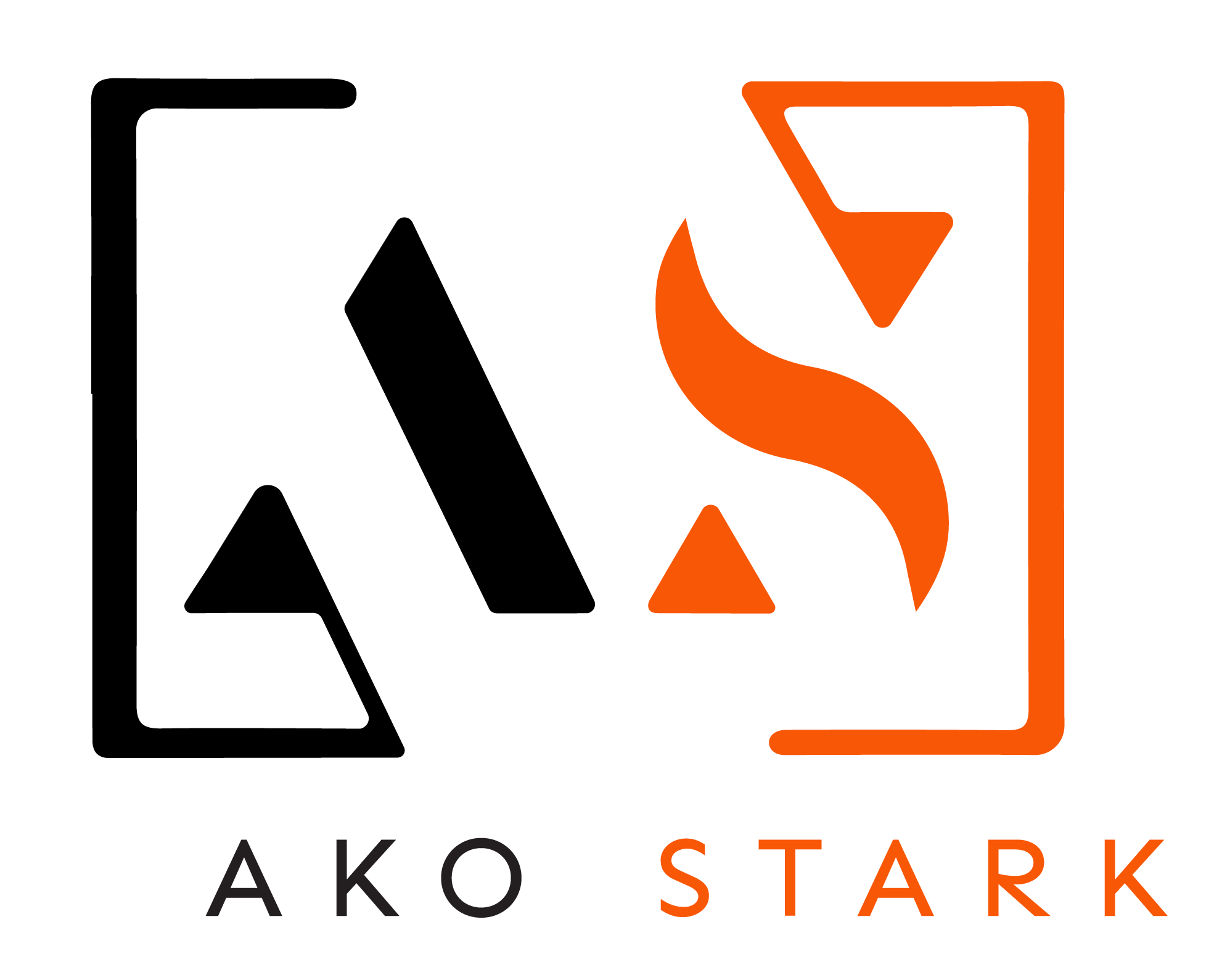Hey folks, ever wondered just how much your domain name matters in the grand world of SEO? Well, it turns out, it's a pretty big deal. And Yes, your domain name helps your overall SEO strategy.
Think of your domain name as your digital handshake. It's how you introduce yourself online. It tells people who you are, what you're all about, and how you fit into the digital marketplace. The name you choose can make your site a welcoming spot for your potential customers or... not so much.
In today's digital age, snagging a spot at the top of search engine rankings is like gold, and everyone's in the race. Did you know global spending on SEO soared to $80 billion in just 2021? That's because being visible in search results, and all starts with a killer domain name.
Your domain doesn't just sit there looking pretty; it influences everything on your site – from your content and landing pages to your products. Grasping how your domain name can make or break your page rankings and traffic flow is key to nailing your organic search strategy.
So, let's dive into the nitty-gritty of domain SEO and check out the case study I put together for you.
What is Domain Name SEO?
Domain SEO is all about fine-tuning your domain name to make it a magnet for both human eyes and search engine bots. It's choosing that perfect combo of a catchy phrase, maybe a clever subdomain, and a top-level domain (TLD) that together spell out your online identity.
Now, don't get it twisted; domain SEO isn't the same as tweaking your webpages or URLs:
- Webpage SEO? That's all about jazzing up your site's content, from the words you write to the images and buttons you include.
- URL SEO? Here, we're talking about polishing those title tags, nailing the link anchor text, and fine-tuning bits of your web address.
- Domain SEO, on the other hand, zeros in on the name of your domain itself.
Here's an example of a perfect domain name SEO-positioned eCommerce stores:
www.guns.com – This website offers a comprehensive range of services including the latest news, product reviews, and detailed information on issues affecting the gun community making them the niche focused around guns.
Everything on this website has to do with guns. Not only that but they also have a huge eCommerce selection of guns people can purchase right through their website.
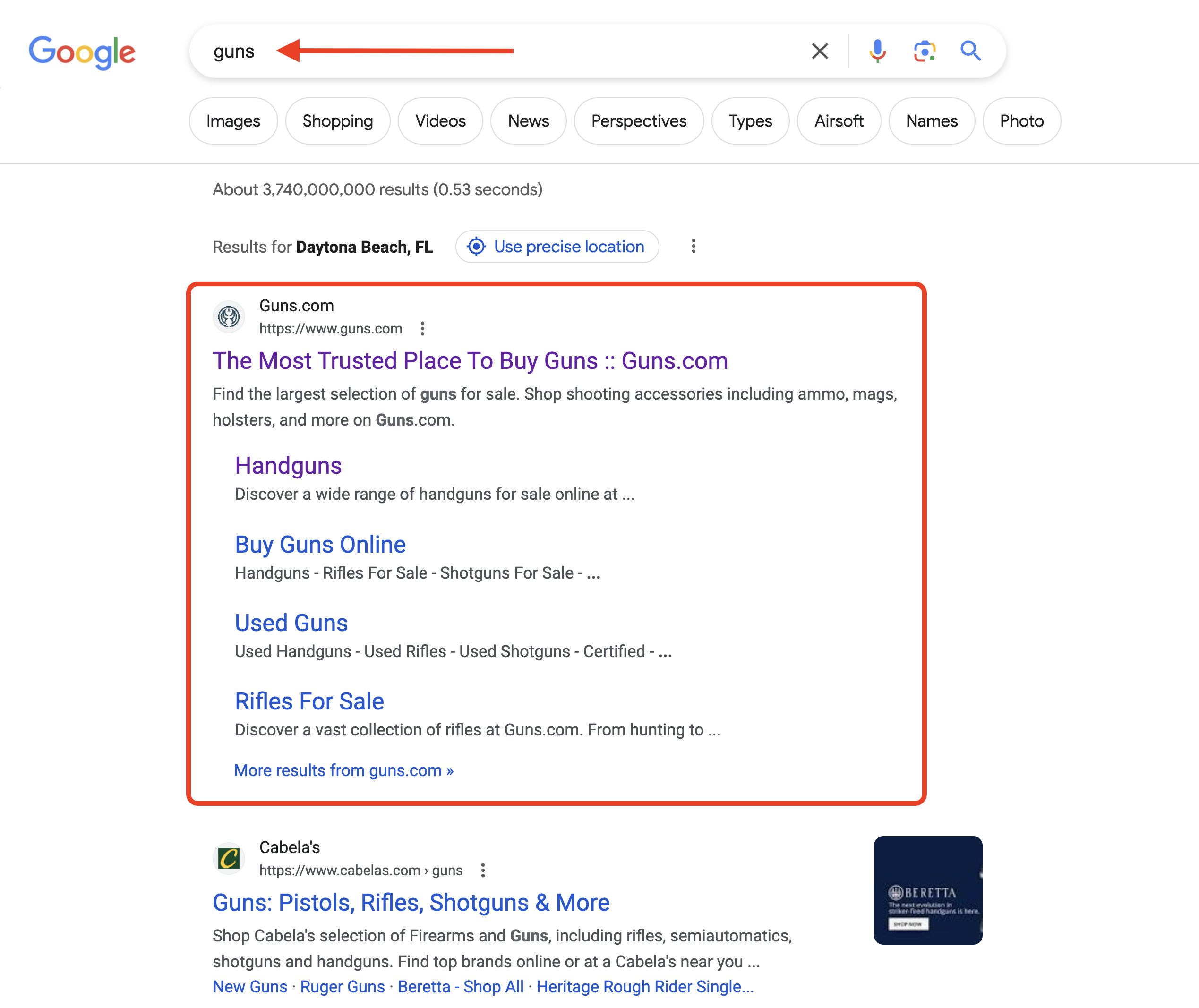
Do you see how when I search for the keyword: Guns in my Google search bar the very first organic listing that comes up is guns.com

This website generates 1.1 million organic visitors a month visiting from keywords they rank for.
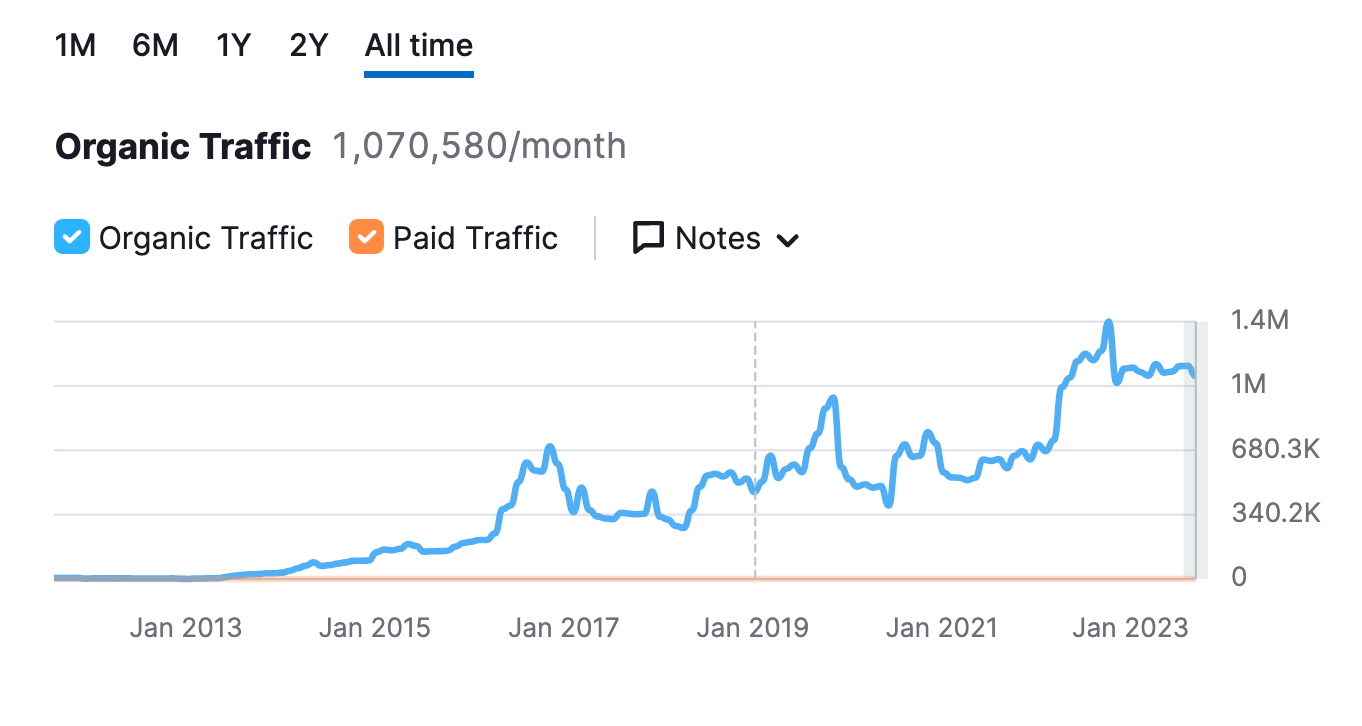
Take a look at the organic traffic flow growth over the years.
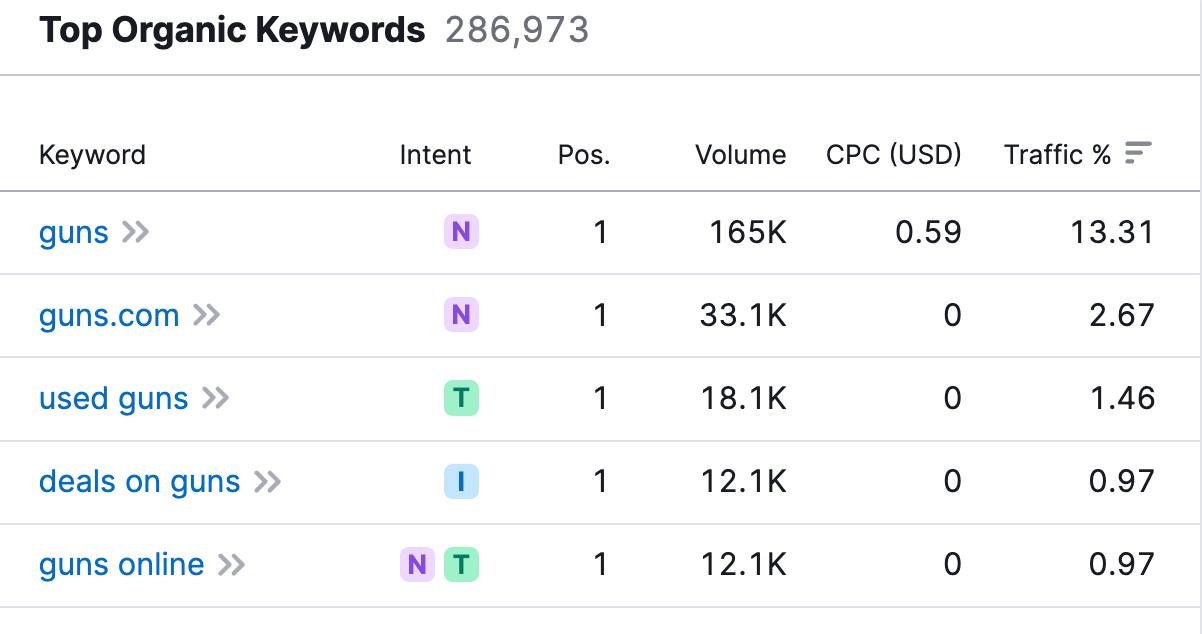
And take a look at how many times the keyword "Guns" is searched every month.
This is a powerful example of what a Domain name keyword looks like.
I have another great example for you to see.
www.80-lower.com – This website operates in AR marketing. For example, AR is a type a platform of a firearm. AR-15, AR-10, 300 blk, and AR9mm. This website is an eCommerce website selling individual parts and build kits that firearms enthusiasts would be interested in either building their own rife, customizing the one they already have, or maintaining their rifles.
The most searched part in the gun-building niche is "80 lower".
80 lower stands for 80 percent lower receiver which is an unfinished lower receiver. People in the firearms niche who enjoy building and customizing firearms are the ones building 80 lowers, turning 80% lower into 100% lower with a trigger that allows the firearm to fire.
Just the "80 lower" keyword is searched:
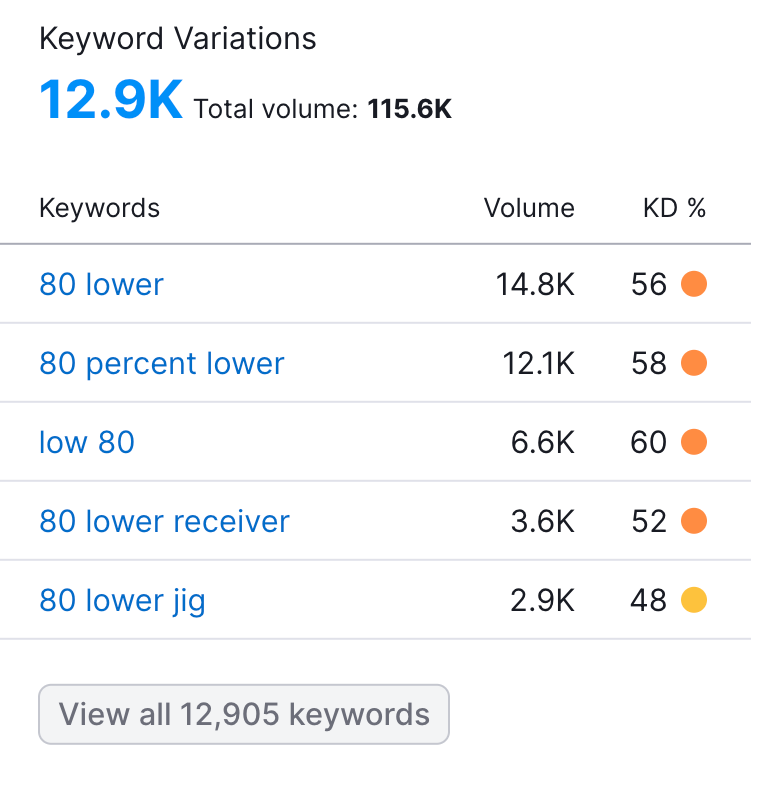
It's searched 14,800 times a month.
And it comes with 12.9k variations.
Here are the variations:
• 80 lower receiver • 80 percent lower • AR 15 80 Lower and so oon.
Now when we Google the keyword: 80 Lower what comes up as a #1 organic position?
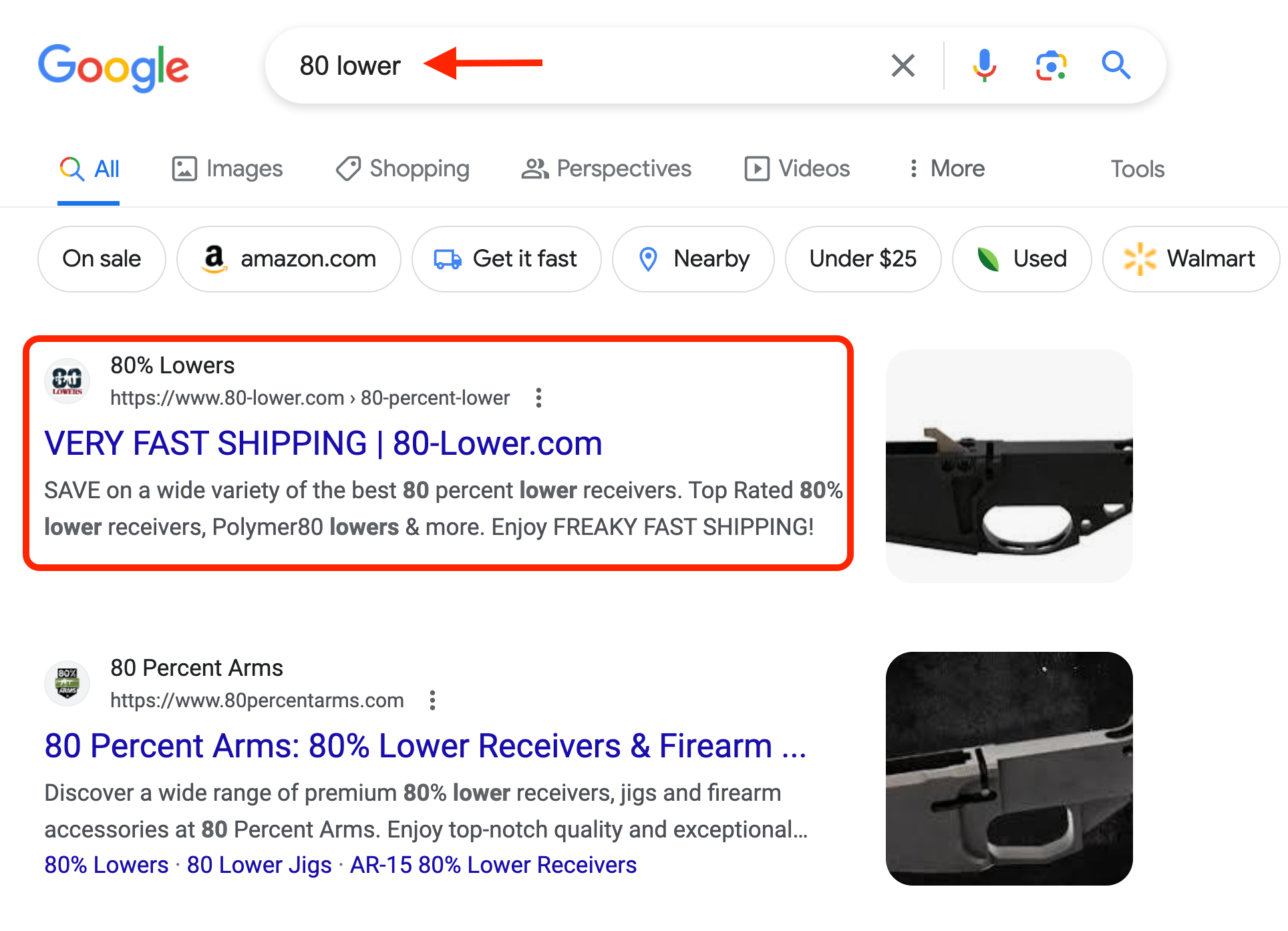
This website also ranks for 16,200 keywords all related to the products they sell and hasn't lost #1 organic placement for the last 7 years. This data by itself speaks for itself.
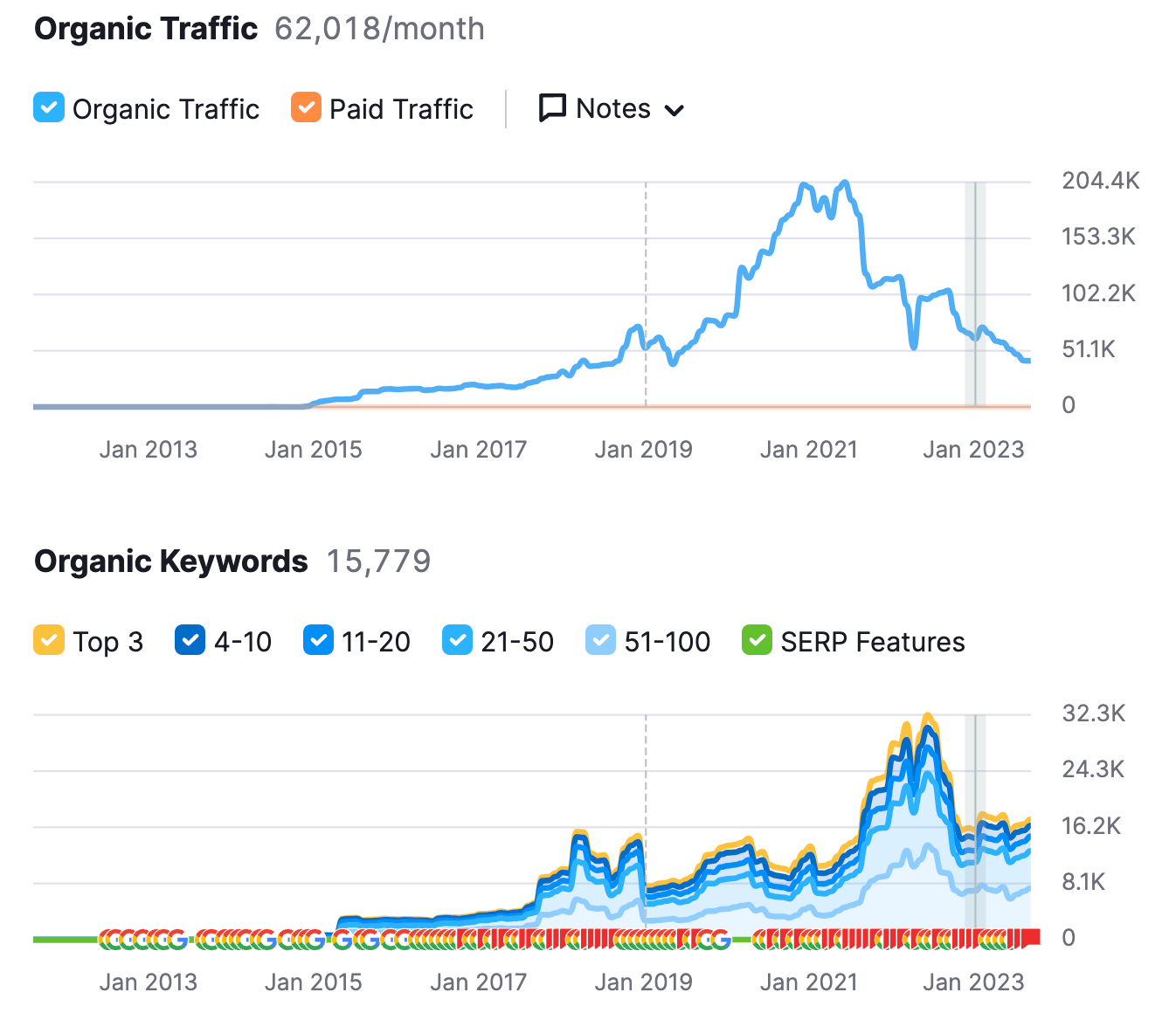
Did you notice the #2 organic position?

Their domain is not 100% keyword but it still has a relevant keyword inside of it which gives Google an idea of what they are selling. Since the keyword 80 percent lower is one of the variations of 80 lower as a keyword it has 12.1k searches. This is the 2nd biggest search volume keyword in this niche.

Now let's take a look at when we search the keyword "80 percent lower" on Google and what comes up as the number 1 organic position.
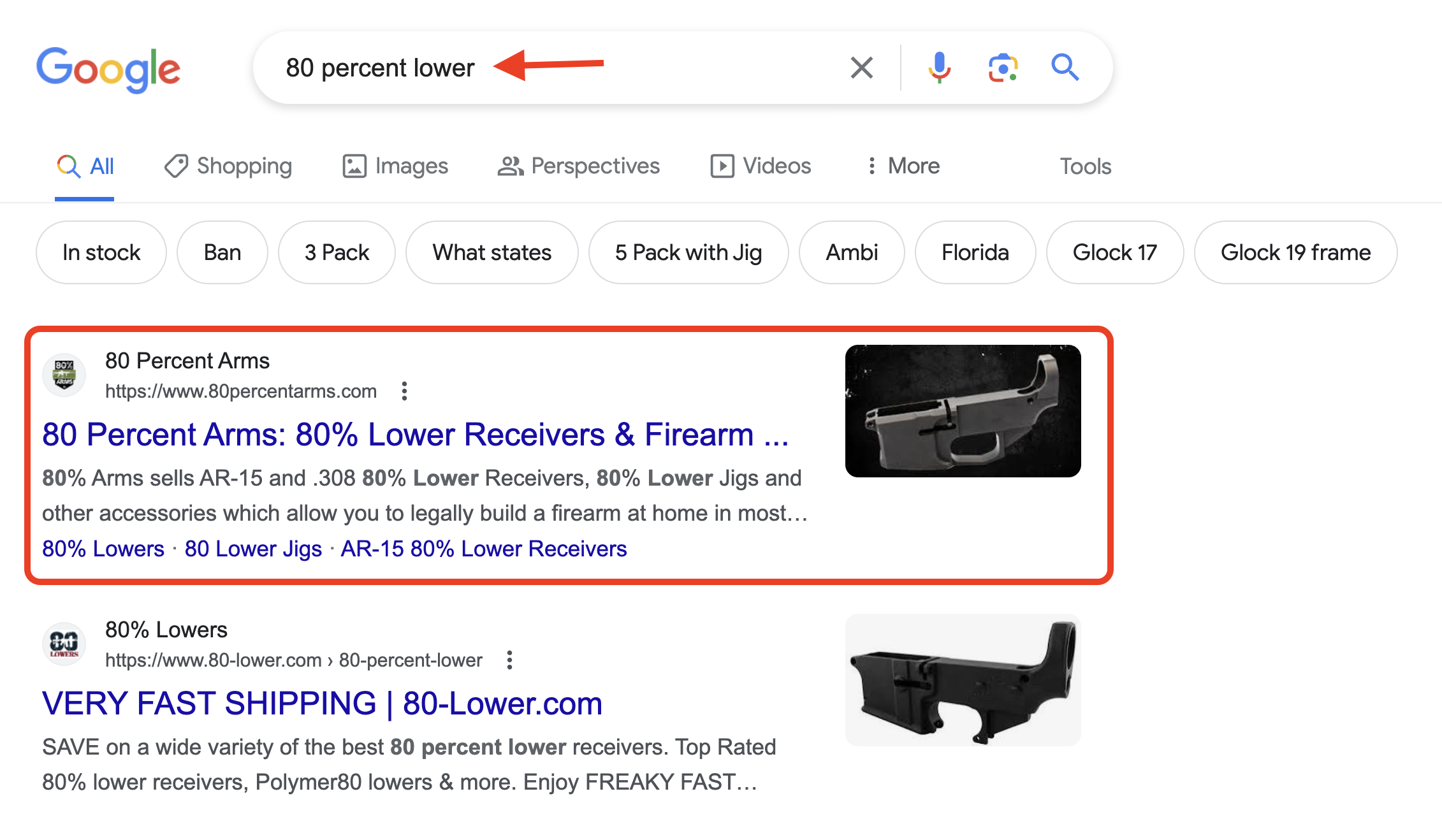
Do you see how 80percentarms.com comes up as the number 1 position and how 80-lower.com comes up as the number 2 position?
More closer the Domain Name is to a niche keyword, the better it will rank in organic search results.
I can give you numerous examples of how Domain Name SEO has made a drastic impact on my client's businesses but this should give you a clear idea of how you should go about positioning a keyword domain for your brand if that's one of your SEO strategies.
It plays well with on-page, off-page, and technical SEO, making your overall SEO game stronger. The more effort you put into crafting a sleek, memorable domain name, the smoother your journey will be in boosting your site's SEO across the board.
Steps for picking an SEO-friendly domain name
Picking a domain name that loves SEO as much as you do involves a few smart moves. You want a name that not only sticks in people's minds but also plays nicely with search engines.
Here's how to nail it:
1. Smart Keyword Use – Keywords in your domain name? That was the golden rule back in the day. Now, it's all about being subtle yet strategic. You don't need to cram keywords in there, but a nod to what you're all about can work wonders. Take Giulio Fashion at giuliofashion.com – it's clear, it's classy, and it tells you exactly what you're in for. Or Sabo Skirt with saboskirt.com – simple, memorable, and on-brand. Aim for a domain that hints at your niche with just a sprinkle of keyword magic.
2. Keep It Short and Sweet – Length matters, but maybe not how you think. While Google doesn't judge a domain by its length, humans sure do. The catchier and shorter your domain, the easier it is for customers to remember and type. The big guns online keep it to around seven characters. Your goal? A domain name that's quick to type, easy to remember, and stands out in the sea of online names.
Keep Your Domain Name Simple
Karl Ulrich, Wharton's Dean of Entrepreneurship, dug deep into the world of online domains and their market performance. His findings? Simplicity wins:
- For every character beyond the seventh in your domain name, expect a 2% drop in traffic.
- Skip the hyphens to dodge traffic dips.
- Repeating vowel and consonant sounds could drag your rank down.
Choose a Trustworthy Domain Extension
The .com TLD reigns supreme as the most sought-after and trusted domain extension worldwide. It's 33% more memorable than any other TLD. While having a .com doesn't directly boost your search engine rankings, its trustworthiness can organically elevate your site's visibility.
If a .com isn't in the cards, don't worry. Extensions like .co, .us, and .net are also gaining trust among audiences. However, a study by Growth Badger suggests steering clear of generic top-level domains (gTLDs) introduced after 2015, such as .frogans, .moda, .olayan, etc., due to their lower recognition in the market.
Conduct a Competitor Domain Name SEO Analysis
Before settling on an SEO-optimized domain name, consider examining your main competitors' domain choices. Analyzing competitor domain names can shed light on their market positioning, rankings, and overall perception, guiding your domain name selection process.
This analysis differs from site audits or content reviews as it revolves around key questions about domain naming strategies and their impact on online visibility. Insights gained here can inform your choices regarding domain keywords, phrases, gTLDs, and lengths, potentially giving you an edge over your competition.
Key questions to ponder include:
- How concise and brand-friendly is their domain name? Does it stay within a 14-character limit?
- Assess the domain's distinctiveness. Has the company secured all related gTLDs to fend off potential impersonators (e.g., swimsuit.com, swimsuit.net, swimsuit.biz)?
- Evaluate the domain's authority and alignment with the company's branding.
The deeper your understanding of competitors' domain SEO strategies, the more informed your domain name purchase will be.
Enhancing Your Domain Name SEO
After securing your domain name, the journey towards optimizing it for search engines begins. Here's how to elevate your domain name's SEO through valuable content creation, strategic backlink building, and impactful branding.
Craft Valuable Content
Content reigns supreme in the SEO world. Producing well-researched, informative content not only establishes your authority but also drives more traffic to your site.
- SEO-Optimized Pages: Start with crafting SEO-friendly web pages, landing pages, and blog posts. Ensure every piece adds value and steers clear of plagiarism or dubious SEO tactics.
- Diverse Content Types: Diversify your content to keep your audience engaged. Consider incorporating:
- Listicles
- How-to guides
- Videos
- Case studies
- Whitepapers
- Infographics
- Annual reports
- Statistical summaries
This rich content not only bolsters your SEO but can also attract organic backlinks, enhancing your domain's authority.
Foster Positive Brand Experiences
Your domain's branding plays a pivotal role in SEO. A memorable, trustworthy brand encourages repeat visits and increases the likelihood of social shares and backlinks.
- Consistent Branding: Ensure your website's design, tone, and messaging are consistent across all pages and content.
- User Experience (UX): A seamless UX keeps visitors engaged longer, reducing bounce rates and signaling to search engines that your site is valuable.
- Social Proof: Leverage reviews, testimonials, and case studies to build trust and credibility.
Cultivating Quality Backlinks for Your Domain
Backlinks, essentially hyperlinks from other websites to yours, are invaluable for two pivotal reasons: they funnel traffic directly to your site and bolster your brand's authority and relevance in the competitive digital arena. A striking statistic reveals that 91% of web pages lacking backlinks don't garner any organic search traffic.
Becoming a Backlink Magnet
The most effective strategy to attract backlinks is to establish yourself as a leading voice within your niche. This involves:
- Producing Actionable Content: Share insights, guides, and content that provide real value to your audience. High-quality, engaging content naturally attracts backlinks as others reference and share your work.
- Networking with Peers: Forge connections with other brands or websites in your field. Collaborations, guest posts, and participating in content roundups can significantly increase your visibility and backlink profile.
Quality Over Quantity
While it's tempting to chase after numerous backlinks, Google's algorithm is savvy to practices that attempt to game the system. Bulk backlinks from a single source or resorting to dubious tactics (like black-hat SEO or paid links) can harm your site's credibility. Focus on earning organic, high-quality backlinks that genuinely enhance your domain's value and search engine standing.
